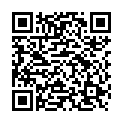|
|
|
| Module code: MST404 |
|
4V (4 hours per week) |
|
4 |
| Semester: 4 |
| Mandatory course: yes |
Language of instruction:
German |
Assessment:
Written exam
[updated 04.08.2012]
|
MST404 Mechatronics and Sensor Technology, Bachelor, ASPO 01.10.2005
, semester 4, mandatory course
|
60 class hours (= 45 clock hours) over a 15-week period.
The total student study time is 120 hours (equivalent to 4 ECTS credits).
There are therefore 75 hours available for class preparation and follow-up work and exam preparation.
|
Recommended prerequisites (modules):
MST105 Fundamentals of Engineering Design
MST306 CAD in Mechanical Engineering
[updated 04.08.2012]
|
Recommended as prerequisite for:
|
Module coordinator:
Prof. Dr.-Ing. Dieter Arendes |
Lecturer: Prof. Dr.-Ing. Dieter Arendes
[updated 01.10.2005]
|
Learning outcomes:
After completing this course, students will have learned the most important manufacturing techniques as specified in the DINá8580 standard. They will be able to distinguish these techniques by their technological features (e.g. operating principles, process parameters, tool systems) and by their areas of use (process/production limitations, materials, cost-efficiency).
[updated 04.08.2012]
|
Module content:
1. Overview and course structure
2. Primary shaping methods used in manufacturing
Casting: Processes, materials and design rules for cast components
Sintering
3. Forming techniques used in manufacturing
Overview and introduction to material plasticity
3.1 Forming sheet and plate metals: Bending, deep drawing, pressing
3.2 Massive forming: Hot and cold extrusion, rolling
4. Separating techniques used in manufacture
4.1 Shearing, thermal separation and material removal
4.2 Stock removal with a geometrically defined cutting tool (lathing,
milling, drilling)
4.3 Stock removal with a geometrically undefined cutting tool (grinding)
5. Joining techniques
5.1 Soldering (brazing and soft soldering)
5.2 Compression welding and fusion welding techniques
(e.g. resistance welding, TIG welding, MIG/MAG welding, laser welding)
5.3 Adhesive bonding
6. Demonstration of CNC turning and milling operations
[updated 04.08.2012]
|
Teaching methods/Media:
Lectures and practical exercises on CNC lathes and milling machines
[updated 04.08.2012]
|
Recommended or required reading:
- A. H. Fritz , G. Schulze, Fertigungstechnik, VDI-Verlag 1989
- H.J. Warnecke, E. Westkäper; Einführung in die Fertigungstechnik; Teubner 1998
- Tabellenbuch Metall und Werkstofftechnik für Metallberufe, Verlag Europa-
Lehrmittel
- K. Weinert, Spanende Fertigung, Vulkan Verlag Essen, 1997
- W. Müller, J.-U. Müller, Löttechnik, Fachbuchreihe Schweißtechnik, DVS-Verlag
1995
- Fachbuchreihe Schweißtechnik, DVS-Verlag, R. Killing, Teil I,
Lichtbogenschweißverfahren;
- D. Böhme, F.-D. Hermann, Teil II, (Autogenverfahren, Thermisches Schneiden,
Elektronen-/Laserstrahlschweißen, Reib-, Ultraschall- und Diffusionsschweißen)
- Widerstandsschweißtechnik aus der Reihe Bibliothek der Technik, Verlag
Moderne Industrie
[updated 04.08.2012]
|


